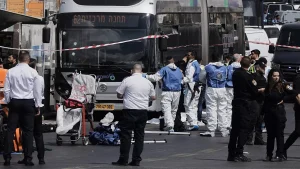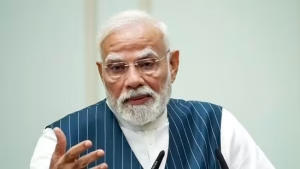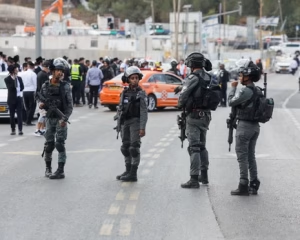New Delhi – Prime Minister Narendra Modi issued a forceful condemnation following the deadly Jerusalem attack that claimed six lives and injured several others on Monday. The terrorist incident, which occurred in east Jerusalem, prompted an immediate diplomatic response from India, reaffirming the nation’s unwavering stance against terrorism in all its manifestations.
Modi’s statement on social media platform X demonstrated India’s solidarity with the victims and their families affected by the Jerusalem attack. The Prime Minister’s response reflects India’s consistent foreign policy approach of condemning terrorist activities regardless of their geographical location or the perpetrators involved.
Details of the Deadly Terrorist Incident

The Jerusalem attack took place at Ramot Junction on Yigal Yadin Street during morning hours, targeting innocent civilians in a coordinated assault. According to preliminary reports, two gunmen carried out the shooting, boarding a public bus and opening fire indiscriminately on passengers, creating scenes of terror and chaos.
Israel’s emergency services confirmed that the terrorists responsible for the Jerusalem attack were neutralized during the incident. The attack resulted in six fatalities and left several others injured, marking another tragic episode in the region’s ongoing security challenges and violence against civilian populations.
India’s Diplomatic Response and Policy Stance

In his official statement regarding the Jerusalem attack, Prime Minister Modi described the incident as a “heinous terrorist attack on innocent civilians.” His response emphasized India’s diplomatic position of extending heartfelt condolences to the families of victims while wishing speedy recovery for those injured in the violence.
Modi’s condemnation of the Jerusalem attack reinforced India’s broader foreign policy principle of opposing terrorism in all forms and manifestations. The Prime Minister specifically highlighted that India “stands firm in its policy of zero tolerance towards terrorism,” demonstrating the country’s unwavering commitment to international peace and security.
Scenes of Terror and Civilian Impact

Footage from the Jerusalem attack revealed the chaotic scenes as people fled from the bus stop at the intersection near the northern entrance to Jerusalem. The visual documentation of the incident highlighted the sudden and terrifying nature of the assault on ordinary citizens going about their daily routines.
The targeting of public transportation in the Jerusalem attack represents a particularly concerning aspect of the incident, as buses serve as vital infrastructure for civilian movement. Such attacks not only cause immediate casualties but also create lasting psychological impact on communities and disrupt normal civilian life.
Also Read: Russia Pounds Ukraine Govt: Devastating 800 Drone Missile Attack
Regional Context and Security Implications


The Jerusalem attack occurred within a broader context of regional tensions and security concerns. The incident took place hours after Israeli Defense Minister Israel Katz issued an ultimatum to Hamas, demanding that the organization drop arms and surrender, with warnings of “annihilation” if they failed to comply with the demands.
This timing adds complexity to the Jerusalem attack, as it demonstrates the volatile security situation in the region. The incident underscores ongoing challenges faced by civilians caught in broader geopolitical conflicts and the persistent threat of terrorist activities targeting innocent populations.
International Solidarity and Condemnation
Modi’s swift response to the Jerusalem attack reflects India’s role in international diplomacy and its commitment to standing with nations facing terrorism. The Prime Minister’s statement serves as part of broader international condemnation of terrorist activities and demonstrates solidarity with affected communities regardless of geographical boundaries.
India’s position on the Jerusalem attack aligns with its historical foreign policy approach of maintaining diplomatic relations while firmly opposing terrorism. This stance reinforces India’s credibility as a responsible member of the international community committed to peace and stability.
Zero Tolerance Policy Reaffirmed
The Prime Minister’s response to the Jerusalem attack reaffirmed India’s zero tolerance policy towards terrorism, a principle that has guided the country’s domestic and international security approach for decades. This consistent stance has been applied across various terrorist incidents globally, demonstrating India’s principled foreign policy approach.
Modi’s condemnation emphasizes that terrorism, regardless of its motivation or location, deserves universal condemnation and action. This position strengthens India’s moral authority in international forums and reinforces its commitment to combating terrorism through multilateral cooperation and diplomatic engagement.
Conclusion: Standing Against Global Terror
The tragic Jerusalem attack and India’s response through Prime Minister Modi’s statement highlight the ongoing global challenge of terrorism and the need for international solidarity. India’s consistent condemnation of such incidents demonstrates the country’s commitment to universal human values and opposition to violence against innocent civilians, reinforcing its position as a responsible global stakeholder in promoting peace and security worldwide.

